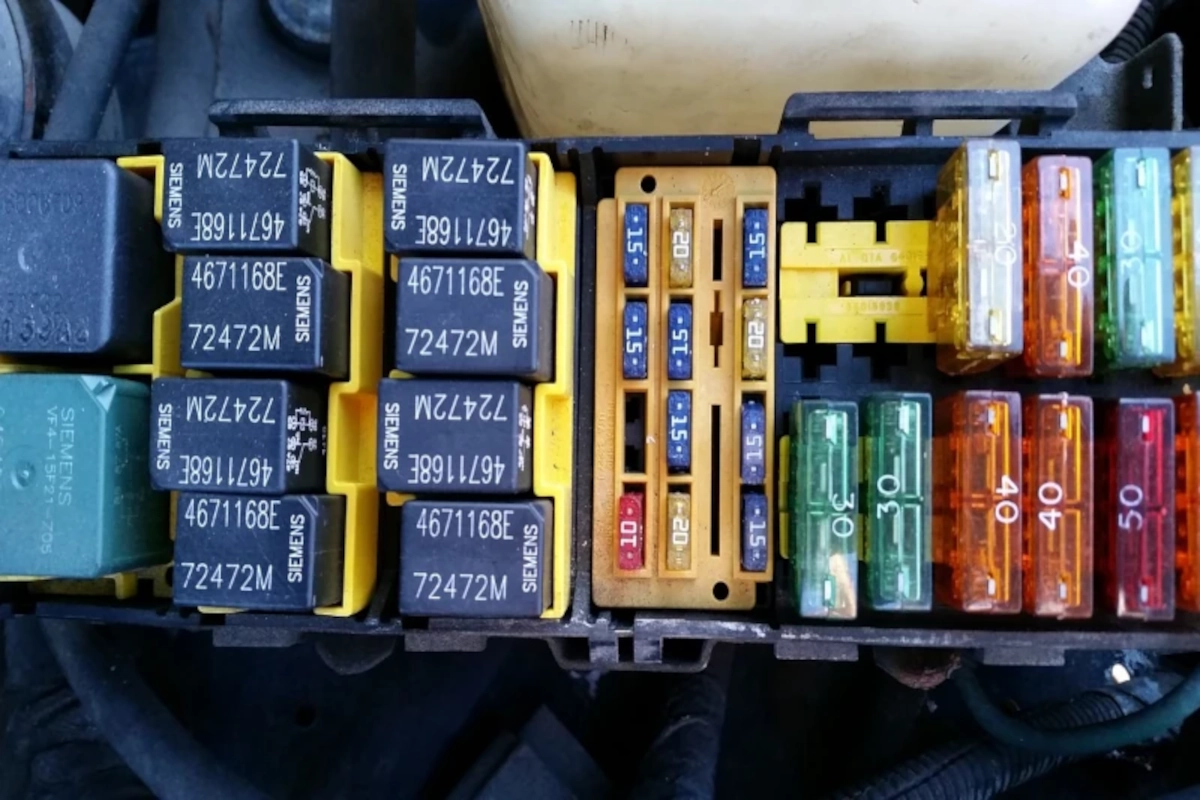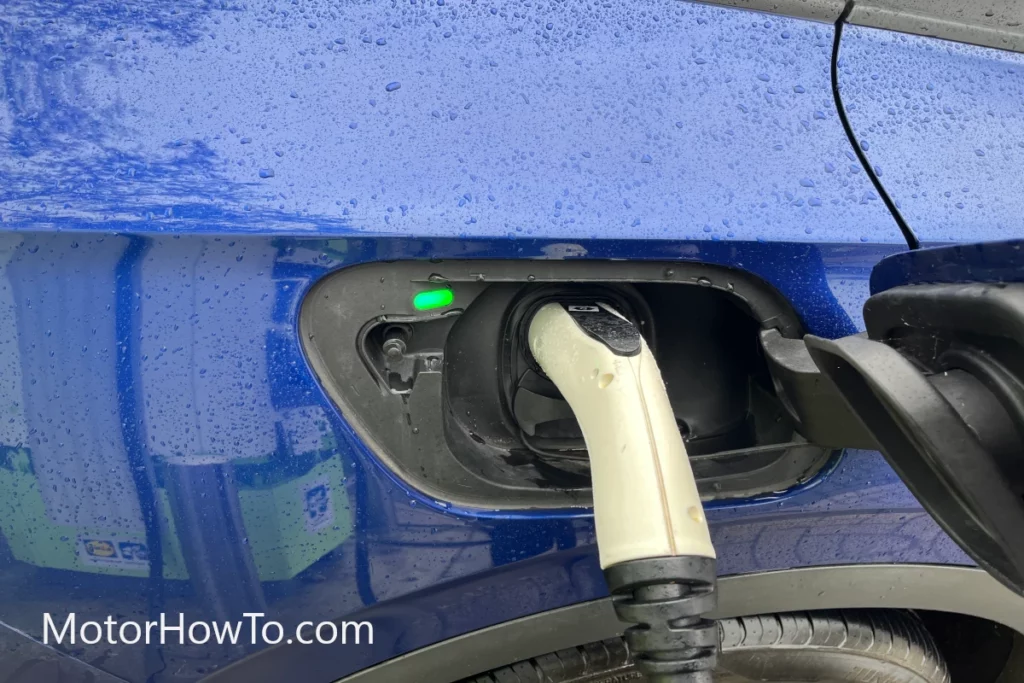Everyone knows that the odometer is very important when it comes to your mileage because of how it is responsible for telling how “old” your car really is based on the distance it has traveled.
However, there are some cases where the odometer suddenly stops working for one reason or another such as when it won’t even light up or show the mileage.
This might be a problem with the electronic components inside your car’s fuse box.
So, in that case, do odometers have a fuse?
The odometer does have a fuse but this fuse is most likely shared together with the speedometer. That’s because the odometer and the speedometer work hand in hand because they use the same data. While they are not exactly connected to one another, they might be sharing the same fuse as well.

The thing about the odometer is that it is usually connected to the speedometer, and that is why most odometers can be found right next to the speedometer.
So, if the odometer stops working due to a blown fuse, then there is also a chance that this will affect your speedometer.
Otherwise, the fuse might not be the reason why your odometer stops working as it might be due to another issue with your car.
Do odometers have a fuse?
In the past, even though cars already had electric components, a lot of the things about older vehicles tend to be analog in the sense that they don’t rely a lot on electricity but are mostly reliant on mechanisms that are controlled by gears and wires.
But that is all in the past as today’s vehicles are different.
Today, most vehicles have components that rely a lot on electricity (DC voltage), and these components include the lights and the different instruments on your instrument cluster or dashboard.
This means that your odometer relies a lot on electricity to function as compared to older odometers that are almost purely mechanically constructed.
But the problem with electronics in your car is that they rely a lot on fuses that can be found in the fuse box.
The sole purpose of the fuse is to disconnect or blow when there is accessive current passing through it. This is a safety measure to prevent the electronics of the car from getting damaged.
So, if the fuse blows out as a result of the usual day-to-day functions of your car, then there is a good reason to believe that the components that make use of that fuse will no longer work.
This is because the fuse when blown disconnects the electricity reaching the components.
That said, because the odometer is electric in nature, you might be wondering if the cause of why your odometer stops working all of a sudden is a blown fuse.
Do odometers even have their own exclusive fuse?
So, in most cases, odometers don’t have their own fuse in the fuse box.
Most instruments on the instrument cluster don’t even have their own exclusive fuses because this will only take a lot of space in the fuse box if all of the instruments have their own fuses.
Instead, the odometer will most likely share the same fuse as the speedometer or the instrument cluster.
The reason for this is that the odometer and the speedometer are very similar in the sense that they use the same data to record the readings that they show.
And the other reason is that traditionally speaking, the odometer is visually found right next to the speedometer.
So, it only makes sense if the two instruments share the same fuse.
As such, because odometers and speedometers use the same fuse, the most likely outcome is that your speedometer will also stop working if the odometer stops working due to a blown fuse.
So, if you do notice that the speedometer does not work anymore as well, then the most logical conclusion here is that the odometer and the speedometer share the same fuse and that this fuse blew out.
However, what you should also know is that different cars function in different ways in the sense that not all cars are designed to be the same.
There might be some car companies that don’t design their instrument clusters in the same way such that the odometer even has a fuse or shares the same fuse with the speedometer.
It really all boils down to how the manufacturer designs the vehicle and the instrument panel design because there is no one size that fits all when it comes to how vehicles are designed.
So, to answer the question, the odometer most likely has a fuse but it isn’t its own exclusive fuse as it most likely shares its fuse with the speedometer or any other electrical component in the car.
As such, a blown involving the odometer will also make the speedometer stop working as well.
And it might even make other electrical components such as power windows and side mirrors, headlights, etc. connected to Electronic Cental Unit (ECU) stop working too.
Can you disconnect the fuse to make the odometer stop working?
Now, if for some reason, you want the odometer to stop working, is it possible for you to disconnect the fuse to make the odometer stop ticking all of a sudden?
Is there a possibility that you could stop the odometer right at its track by disconnecting the fuse?
Technically, it is possible for you to make the odometer stop working all of a sudden if you attempt to disconnect its fuse.
However, this shouldn’t be something that you should attempt to do just so you could change your car’s mileage.
Remember the fact that tampering with the car’s mileage or making it appear that the car has lower mileage than its true mileage is a fraudulent act that has legal consequences.
So, for the sake of the law, you shouldn’t try to disconnect the fuse to make the odometer stop working.
Then there is also the possibility that the fuse that your odometer uses is also connected to the other electrical components in the vehicle.
So, for example, if the odometer shares the same fuse with the speedometer, disconnecting the fuse will also stop the speedometer from working.
And you don’t want the speedometer to stop working especially if you are driving on a road with a very strict speed limit.
This can be dangerous both in terms of your well-being and in a legal sense.
Also, the fuse of your odometer may also be connected to other components that run on electricity.
That means that disconnecting it could stop those components from working as well so it is a very dangerous thing to do.
You wouldn’t want to drive in the middle of the night with headlights that aren’t working.
And there’s also the ECU which has a lot of electronics and data processors.
The ECU is the computer that stores all of the necessary data of your car.
So, if your odometer does indeed stop working if you disconnect the fuse, and if the ECU is on an isolated circuit, it may still be working and will still have the data relevant to your car’s actual mileage.
As such, the odometer may stop keeping track of your car’s mileage but the data will still be stored in the ECU, and this could be troublesome if the data is retrived and it reveals that your car has higher mileage than what the odometer shows.
So, while it may be theoretically possible to make the odometer stop working by removing its fuse, there are a lot of different factors that need to be looked at in terms of the legality and the safety considerations involved.
That’s why we would never recommend that you try to disconnect the odometer’s fuse regardless of whatever your reason for doing so migth be.



